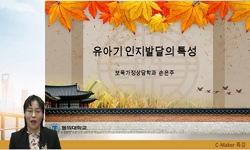The purpose of this study was to examine whether functional fitness predicts subsequent cognitive decline in community dwelling older adults. The subjects were 1094 (556 men and 538 women) adults aged 60 years or older who completed the baseline (2000...
http://chineseinput.net/에서 pinyin(병음)방식으로 중국어를 변환할 수 있습니다.
변환된 중국어를 복사하여 사용하시면 됩니다.
- 中文 을 입력하시려면 zhongwen을 입력하시고 space를누르시면됩니다.
- 北京 을 입력하시려면 beijing을 입력하시고 space를 누르시면 됩니다.

고령자의 기능적 체력과 인지기능 저하와의 관련-10년간의 장기종단연구 = The Relationship Between Functional fitness and Cognitive Function Decline in Older Adults : 10 years longitudinal study
한글로보기https://www.riss.kr/link?id=A102188922
- 저자
- 발행기관
- 학술지명
- 권호사항
-
발행연도
2016
-
작성언어
Korean
- 주제어
-
KDC
517.405
-
등재정보
KCI등재
-
자료형태
학술저널
- 발행기관 URL
-
수록면
591-601(11쪽)
-
KCI 피인용횟수
0
- DOI식별코드
- 제공처
-
0
상세조회 -
0
다운로드
부가정보
다국어 초록 (Multilingual Abstract)
The purpose of this study was to examine whether functional fitness predicts subsequent cognitive decline in community dwelling older adults. The subjects were 1094 (556 men and 538 women) adults aged 60 years or older who completed the baseline (2000-2002) and ten years later (2010-2012) examinations of the National Institute for Longevity Science-Longitudinal Study of Aging (NILS-LSA) in Japan. We examined associations at baseline and over a 10-year follow-up period between seven functional fitness measures: gait speed, step length, one leg standing, reaction time, leg extension power, grip strength and knee extension strength and mini-mental state examination (MMSE). Multivariate logistic regression was used to examine the relationships between functional fitness and cognitive function decline every two years. There was a significant association between the reaction time and risk of becoming decrease to 23 points of MMSE in both model Ⅰ and model Ⅱ of all waves in men and women for 10 years. Gait speed was related to decrease in the cognitive function from after six years (5th wave) in both men (OR, 0.72; CI, 0.53-0.95) and women (OR, 0.79; CI, 0.54-0.97). Leg extension power and grip strength of the physical function were associated with cognitive function decline from after six years it was found in men only. In the women case, it was showed after 10 years. Functional fitness was identified as factors that can predict the decrease in cognitive function. But it turned out that the functional fitness related to cognitive function decreases depending on the time and gender are different.
목차 (Table of Contents)
- Abstract
- 1. 서론
- 2. 연구 방법
- 3. 연구 결과
- 4. 논의
- Abstract
- 1. 서론
- 2. 연구 방법
- 3. 연구 결과
- 4. 논의
- 5. 결론
- REFERENCES
참고문헌 (Reference)
1 Mizuki, H., "Usefulness of a 50-meter round walking test for fall prediction in the elderly requiring long-term care" 27 (27): 3663-3666, 2015
2 Jones, C. J., "The application of Fullerton's functional fitness test for older adults in a group setting" 15 (15): 194-197, 2000
3 Studenski, S. A., "The FNIH sarcopenia project: rationale, study description, conference recommendations, and final estimates" 69 (69): 547-558, 2014
4 Radloff, L. S., "The CES-D scale a self-report depression scale for research in the general population" 1 (1): 385-401, 1977
5 Taekema, D. G., "Temporal relationship between handgrip strength and cognitive performance in oldest old people" 41 (41): 506-512, 2012
6 Rosano, C., "Slower gait, slower information processing and smaller prefrontal area in older adults" 41 (41): 58-64, 2012
7 Yamada, M., "Reaction time as a predictor of mortality: the radiation effects research foundation adult health study" 75 (75): 154-160, 2013
8 Hagger-Johnson, G, "Reaction time and mortality from the major causes of death: the NHANES-III study" 9 (9): e82959-, 2014
9 Leon. J. T., "Prevention of Alzheimer disease" 20 : S97-S99, 2006
10 Foley, D. J., "Physical functioning. Established Populations for Epidemiologic Studies of the Elderly" National Institutes of Health 56-88, 1986
1 Mizuki, H., "Usefulness of a 50-meter round walking test for fall prediction in the elderly requiring long-term care" 27 (27): 3663-3666, 2015
2 Jones, C. J., "The application of Fullerton's functional fitness test for older adults in a group setting" 15 (15): 194-197, 2000
3 Studenski, S. A., "The FNIH sarcopenia project: rationale, study description, conference recommendations, and final estimates" 69 (69): 547-558, 2014
4 Radloff, L. S., "The CES-D scale a self-report depression scale for research in the general population" 1 (1): 385-401, 1977
5 Taekema, D. G., "Temporal relationship between handgrip strength and cognitive performance in oldest old people" 41 (41): 506-512, 2012
6 Rosano, C., "Slower gait, slower information processing and smaller prefrontal area in older adults" 41 (41): 58-64, 2012
7 Yamada, M., "Reaction time as a predictor of mortality: the radiation effects research foundation adult health study" 75 (75): 154-160, 2013
8 Hagger-Johnson, G, "Reaction time and mortality from the major causes of death: the NHANES-III study" 9 (9): e82959-, 2014
9 Leon. J. T., "Prevention of Alzheimer disease" 20 : S97-S99, 2006
10 Foley, D. J., "Physical functioning. Established Populations for Epidemiologic Studies of the Elderly" National Institutes of Health 56-88, 1986
11 Shimokata, H., "New comprehensive study on aging-the National Institute for Longevity Sciences, Longitudinal Study of Aging (NILS-LSA)" 10 (10): S1-S9, 2000
12 Lynch, N. A., "Muscle quality. I. Age-associated differences between arm and leg muscle groups" 86 (86): 188-194, 1999
13 Scarmeas, N., "Motor signs predict poor outcomes in Alzheimer disease" 64 (64): 1696-1703, 2005
14 Aggarwal, N. T., "Motor dysfunction in mild cognitive impairment and the risk of incident Alzheimer disease" 63 (63): 1763-1769, 2006
15 Hunter, S. K., "Medicine and Science in Sports and Exercise" Publish Ahead of Print 2016
16 Iwai, N., "Leisure-time physical activity and related lifestyle characteristics among middle-aged Japanese" 10 (10): 226-233, 2000
17 Petrella, J. K., "Leg extensor power, cognition, and functional performance in independent and marginally dependent older adults" 33 (33): 342-348, 2004
18 Steves, C. J., "Kicking back cognitive ageing: leg power predicts cognitive ageing after ten years in older female twins" 62 (62): 138-149, 2016
19 Burns, A., "Key Papers in Geriatric Psychiatry: 'mini-mental state': a practical method for grading the cognitive state of patients for the clinician" 13 (13): 285-294, 1998
20 Suh, S. W., "Impacts of illiteracy on the risk of dementia" 23 : 1-11, 2016
21 Taekema, D. G., "Handgrip strength as a predictor of functional, psychological and social health. A prospective population-based study among the oldest old" 39 (39): 331-337, 2010
22 Buchman, A. S., "Gender differences in upper extremity motor performance of older persons" 5 : 59-65, 2005
23 Abellan van Kan, G., "Gait speed, body composition, and dementia. The EPIDOS-Toulouse cohort. The Journals of Gerontology" 67 (67): 425-432, 2011
24 Abellan van Kan, G., "Gait speed at usual pace as a predictor of adverse outcomes in community-dwelling older people an International Academy on Nutrition and Aging (IANA) Task Force" 13 (13): 881-889, 2009
25 Holsinger, T., "Does this patient have dementia?" 297 (297): 2391-2404, 2007
26 Atkinson, H. H., "Cognitive function, gait speed decline, and comorbidities: the health, aging and body composition study. The Journals of Gerontology" 62 (62): 844-850, 2007
27 Gallucci, M., "Body mass index, lifestyles, physical performance and cognitive decline:the 'Treviso Longeva (TRELONG)' study" 17 (17): 378-384, 2013
28 Fitzpatrick, A. L., "Associations of gait speed and other measures of physical function with cognition in a healthy cohort of elderly persons. The Journals of Gerontology" 62 (62): 1244-1251, 2007
29 Boyle, P. A., "Association of muscle strength with the risk of Alzheimer disease and the rate of cognitive decline in community-dwelling older persons" 66 (66): 1339-1344, 2009
30 이성철, "Association between Comprehensive Physical Functions and Cognitive Impairment in a Community-dwelling Elderly Population: 8-year Longitudinal Study" 한국생활환경학회 22 (22): 679-687, 2015
31 Rolland, Y., "An abnormal 'one-leg balance' test predicts cognitive decline during Alzheimer's disease" 16 (16): 525-531, 2009
32 Kim, S. H., "A meta-analysis of the correlates of successful aging in older adults" 22 : 1-21, 2016
33 Soumaré, A., "A cross-sectional and longitudinal study of the relationship between walking speed and cognitive function in community-dwelling elderly people" 64 (64): 1058-1065, 2009
동일학술지(권/호) 다른 논문
-
트레드밀 운동이 헌팅턴병 유발 쥐의 우울증과 신경전달물질에 미치는 영향
- 한국생활환경학회
- 박지은(Ji-Eun Park)
- 2016
- KCI등재
-
12주간 필라테스 운동이 비만 여대생의 하지 등속성 근력, 혈중 Cortisol 및 건강관련 삶의 질에 미치는 영향
- 한국생활환경학회
- 양순희(Soon-Hee Yang)
- 2016
- KCI등재
-
젊은 성인 남자의 최대산소섭취량 수준과 심박변이도 및 운동 후 심박수 회복율의 관련성
- 한국생활환경학회
- 황부근(Boo-Geun Hwang)
- 2016
- KCI등재
-
소규모 공동주택의 세대 칸막이 벽체의 차음성능 기준설정에 관한 연구
- 한국생활환경학회
- 천진성(Jin-Sung Cheon)
- 2016
- KCI등재
분석정보
인용정보 인용지수 설명보기
학술지 이력
| 연월일 | 이력구분 | 이력상세 | 등재구분 |
|---|---|---|---|
| 2026 | 평가예정 | 재인증평가 신청대상 (재인증) | |
| 2020-01-01 | 평가 | 등재학술지 유지 (재인증) |  |
| 2017-01-01 | 평가 | 등재학술지 유지 (계속평가) |  |
| 2013-01-01 | 평가 | 등재 1차 FAIL (등재유지) |  |
| 2010-01-01 | 평가 | 등재학술지 유지 (등재유지) |  |
| 2007-01-01 | 평가 | 등재학술지 선정 (등재후보2차) |  |
| 2006-01-01 | 평가 | 등재후보 1차 PASS (등재후보1차) |  |
| 2005-09-23 | 학술지등록 | 한글명 : 한국생활환경학회지외국어명 : The Korean Society of Living Environmental System |  |
| 2004-07-01 | 평가 | 등재후보학술지 선정 (신규평가) |  |
학술지 인용정보
| 기준연도 | WOS-KCI 통합IF(2년) | KCIF(2년) | KCIF(3년) |
|---|---|---|---|
| 2016 | 0.29 | 0.29 | 0.28 |
| KCIF(4년) | KCIF(5년) | 중심성지수(3년) | 즉시성지수 |
| 0.31 | 0.3 | 0.376 | 0.11 |





 DBpia
DBpia




